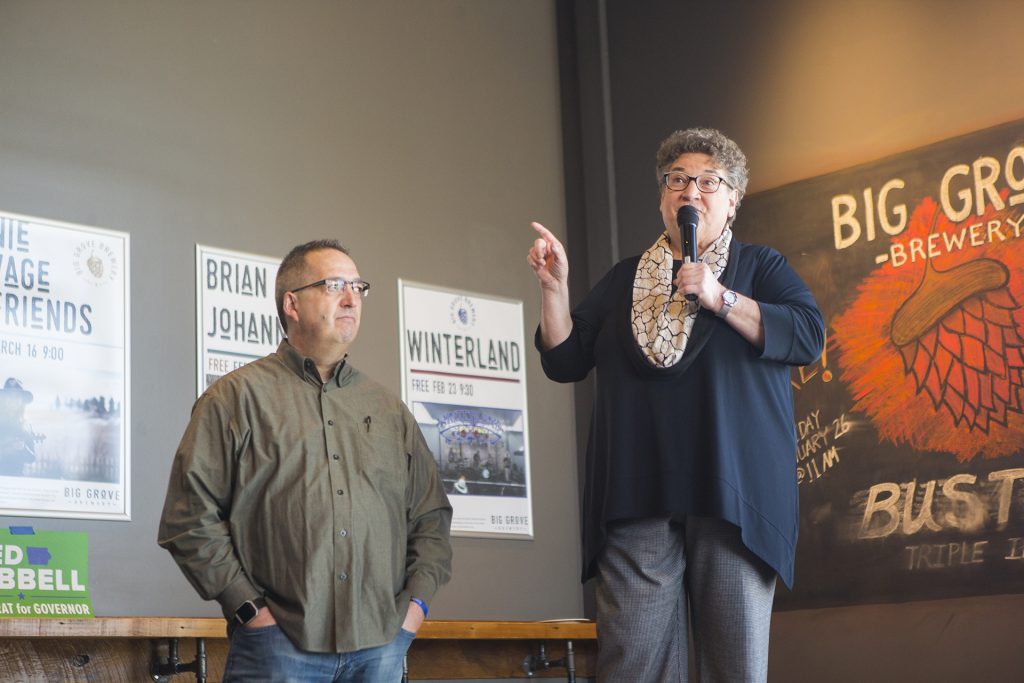Volunteers dial phones from a 1950s-style boardroom, circled around a table working to encourage Iowans to get out the vote.
A woman wearing a T-shirt emblazoned with the name of the candidate she supports grabs a stack of door hangers, welcoming more volunteers in from her porch to prepare for an afternoon of canvassing.
Ahead of the party caucuses in Iowa taking place today, it’s work such as this that many Iowans felt compelled to contribute to see to it that their preferred gubernatorial candidate gets elected in 2018.
This scene is familiar for Helane Golden, a retired teacher who has been politically engaged her whole life, working on several campaigns and helping with phone banks. State Sen. Nate Boulton, D-Des Moines, is the gubernatorial candidate who has Golden’s support this time around.
RELATED: Civic engagement goes beyond turning out to vote
Being involved is all about fighting for a candidate who will go to bat for the people they serve, Golden said.
“My mom used to say I was licking envelopes in smoke-filled rooms when I was 2,” she said. “I’ve just done the political thing all my life.”
University of Iowa sophomore Samuel Eck, a history and economics double major, canvassed for gubernatorial candidate Cathy Glasson on Feb. 3. He said he hoped to help Glasson clinch the nomination and garner support for her progressive values.
Eck said he was unsure just how much of an impact volunteers make, pointing to 2016 Democratic presidential nominee Hillary Clinton’s loss to President Donald Trump. According to a Bloomberg report, Clinton raised more than $1 billion, while Trump raised nearly $647 million. Clinton had a strong ground game, Eck said, but still lost the election.
“I just feel like if I’m not doing anything, that makes it worse,” he said.
RELATED: A tale of two campaigns
Especially for those who aren’t content with the current state of politics, said Susan Bryant, a volunteer on gubernatorial candidate Fred Hubbell‘s campaign, it’s important to help relay information to other voters and rally around anything that can improve Iowa as a state.
“It’s difficult to get excited about politics other than when you’re angry about it,” Bryant said. “I think it’s a really positive way to challenge frustration instead of being frustrated or angry, it is to get out and really move that energy into creating something positive for this state.”
Many of the people volunteering at and attending the events were older than the student population, but bringing people into the political process no matter their age is important, said state Rep. Mary Mascher, D-Iowa City, who is also helping Hubbell get elected.
Most of Hubbell’s campaign staff is composed of people under age 30, Mascher said, noting that young people are key to winning any election.
“You don’t have to have an age behind your name in order to care about [the issues],” she said.
The showing of support boosted the morale for gubernatorial candidates ahead of the caucuses.
Seeing the crowd at Big Grove Brewery in Iowa City left Hubbell feeling confident about how he’ll fare against the other Democratic gubernatorial candidates.



